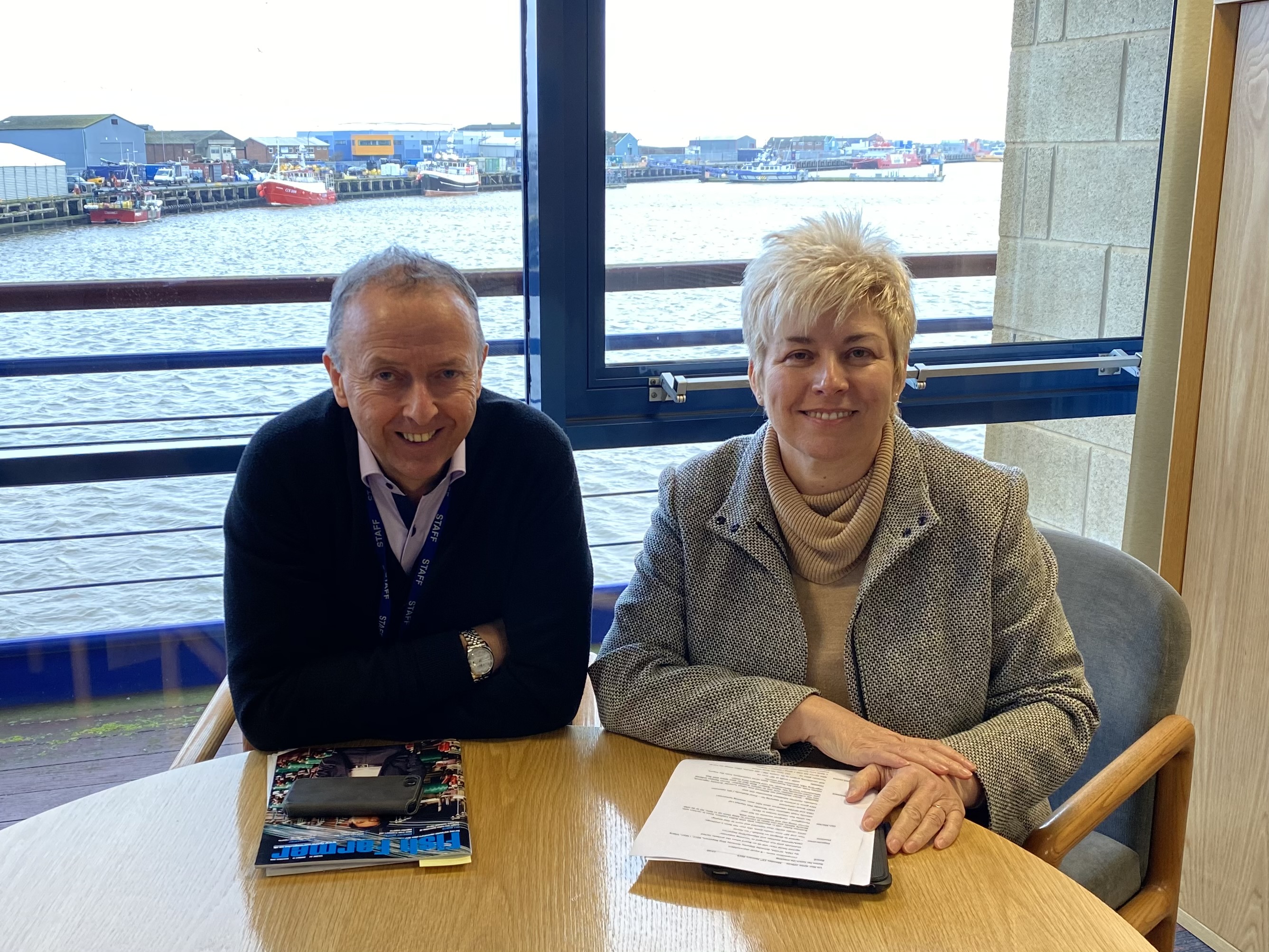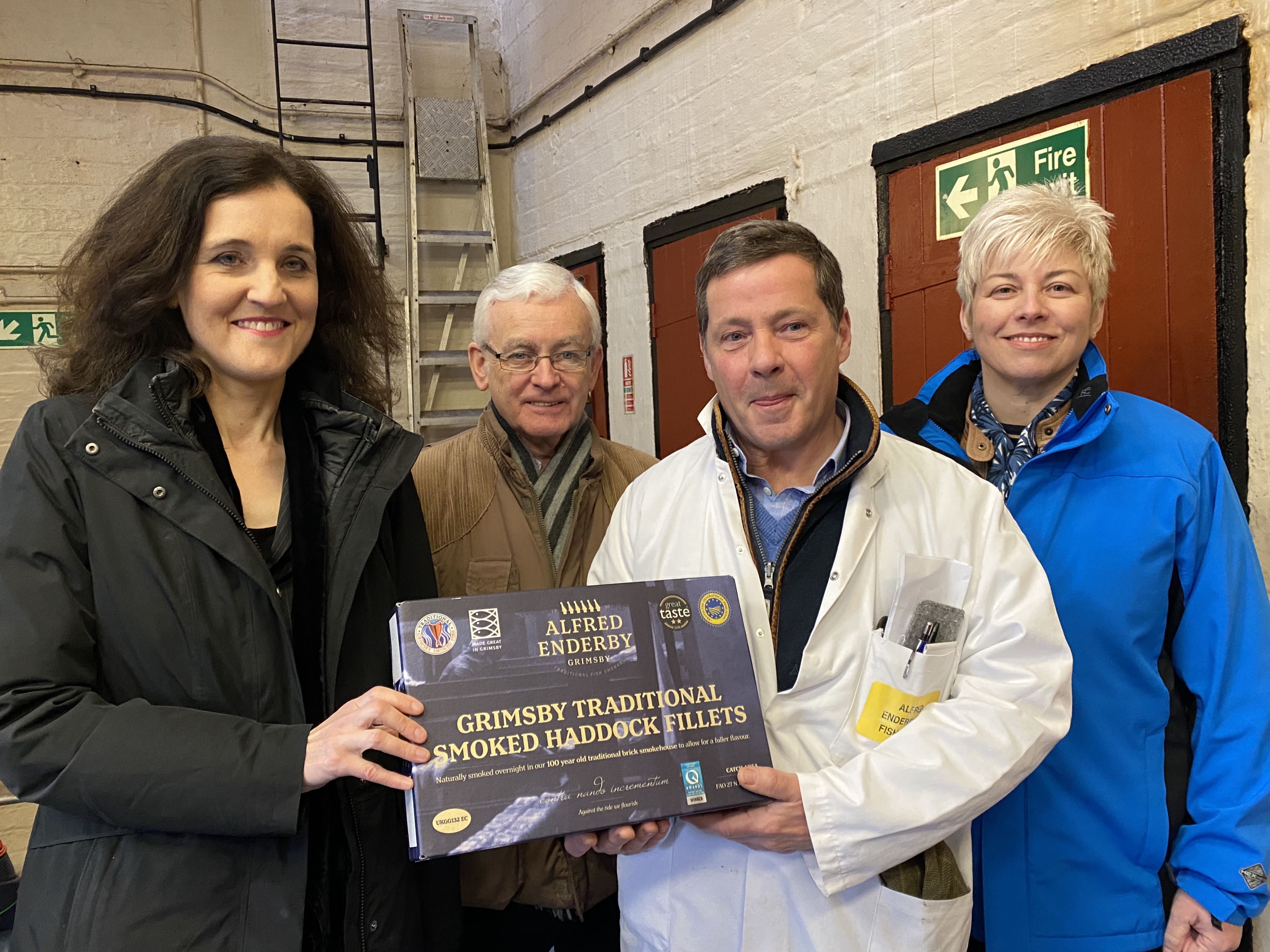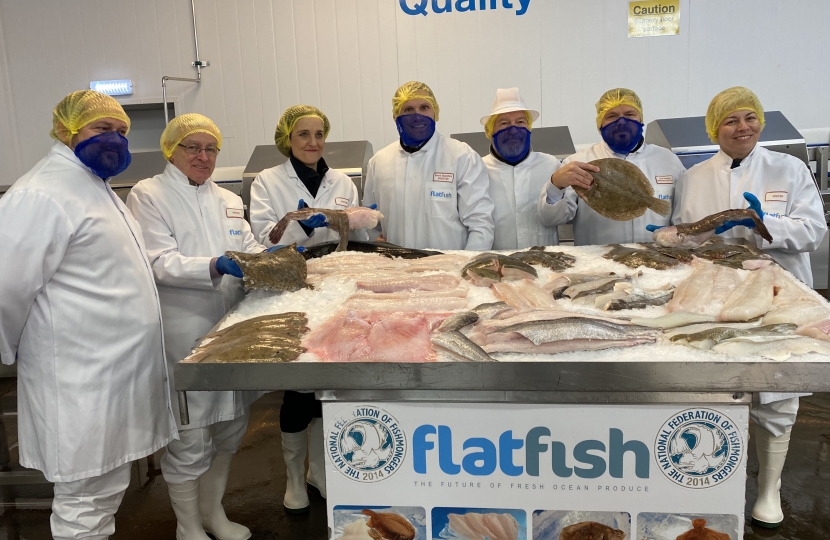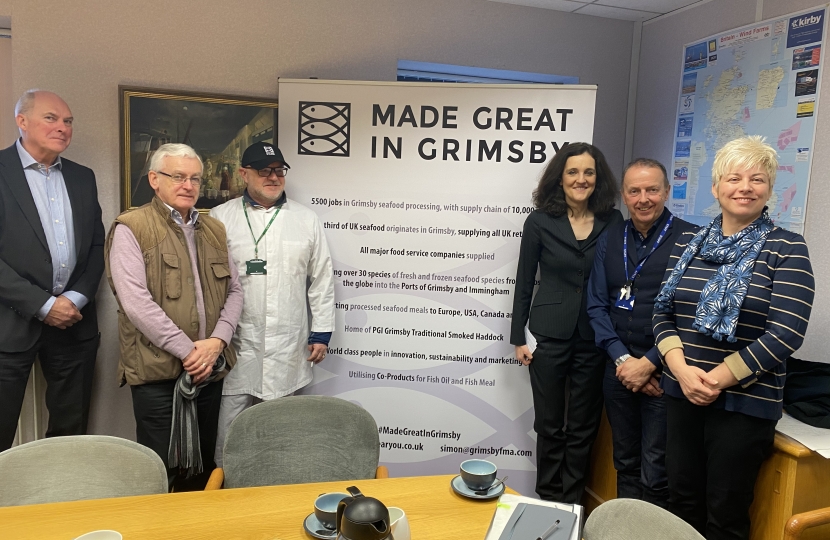Fish processing is probably the biggest private sector employer still in Grimsby today. With our history of fish catching and fish processing over hundreds of years, Grimsby is the biggest centre in the UK for fish processing and it directly employs 5,500 people. The supply to the fish processing is also huge, so it’s absolutely vital for us that this industry remains active and thriving.
We still have little bits of catching going on, some white fish and shellfish, but predominately its fish processing that’s important here. Most of the fish that we eat in the UK is white fish – haddock and cod. Most of that is imported from our partner countries in Iceland, Norway and the Faroe Islands, but there isn’t enough haddock and cod in our own waters to satisfy our love for fish and chips. But what’s important to remember is that we have very large employers in Grimsby and very small one-man bands as well.
We have the big four fish processors in Grimsby. We have Youngs Seafoods, whose head offices are in Grimsby. We have Morrisons, who are big at seafood processors. We have Hilton Food Group and we have New England Seafoods as well. So not only do we have UK connections, but international connections for our fisheries, too.

One of the first jobs I did when I was elected was to visit Martin Bowers, who is the CEO of Grimsby Fishdock Enterprises, which is where the fish market is run from. I talked to him about what we needed from Brexit to get an understanding of how the industry works locally. Then we were very lucky to have a visit from Teresa Villiers, the former Secretary of State of Environment, Food and Rural Affairs, to show her around the town and the kind of processing that we’ve got.
As well as having the big four companies in the Grimsby area, we have family owned companies like Flatfish, who are a very high quality supplier of fish products and supply into Waitrose. They’ve had some significant investment from Japanese interests, so you can see how internationally important our fish processing is. We’ve also got our smaller specialist processors, like Patrick Salmon and Alfred Enderby. Alfred Enderby. is very well known in the town for smoking haddock and salmon. The protected geographical indicator for Grimsby smoked fish is very important as well.

There’s also an initiative called Made Great in Grimsby, to support fish that’s processed here and that’s something that we talked to the minister about. Having that platform to make sure that fish processing and fish processing interests are taking into account by the Government is really important.
Understandably, people believe that fish processing is about packing fish fingers, but it’s much more intricate than that. We have very specialist fish filleting skills here. We have a knowledge of fish that other areas don’t have and with the investment in companies like Flatfish by Japanese companies, and Japan utterly revere high quality fish and fish skills. It shows that the importance that Grimsby still has on a global scale with connections to fish and fishing.
This is something that I always make sure I’m keeping up to date with. Most weeks, I’m talking to fish processors about different issues, including what we can do to help grow jobs. As with most industries, a lot of areas are becoming automated. Not all of them, because we still need the specialist hand fish filleters. We have some processors who supply high end restaurants like the Ivy with fish products but we need more people qualified in engineering as automation and artificial intelligence becomes used more in the industry, so that’s something that we need to start developing. We need more food scientists and we need more engineers for the food industry as well to grow in the future.



